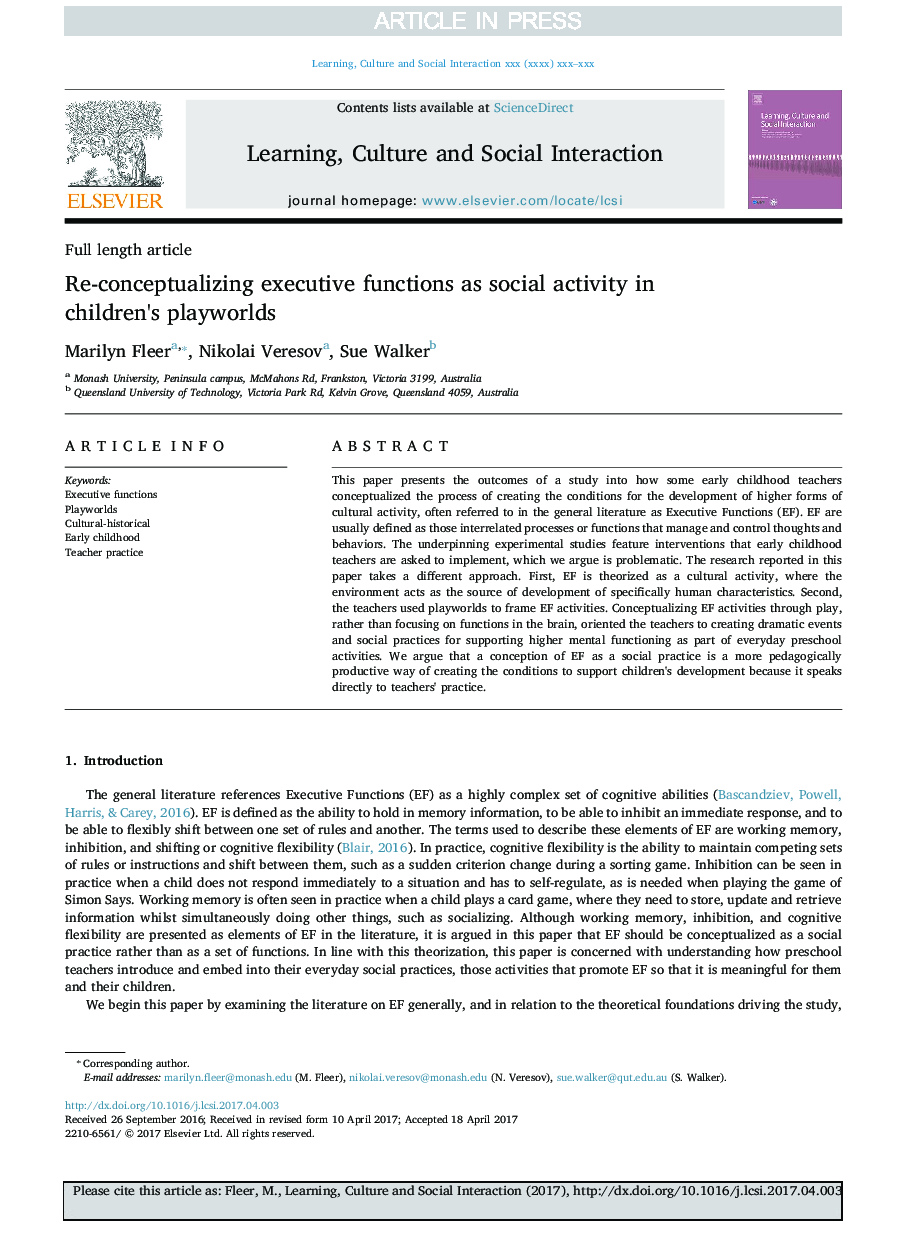| Article ID | Journal | Published Year | Pages | File Type |
|---|---|---|---|---|
| 4939881 | Learning, Culture and Social Interaction | 2017 | 11 Pages |
Abstract
This paper presents the outcomes of a study into how some early childhood teachers conceptualized the process of creating the conditions for the development of higher forms of cultural activity, often referred to in the general literature as Executive Functions (EF). EF are usually defined as those interrelated processes or functions that manage and control thoughts and behaviors. The underpinning experimental studies feature interventions that early childhood teachers are asked to implement, which we argue is problematic. The research reported in this paper takes a different approach. First, EF is theorized as a cultural activity, where the environment acts as the source of development of specifically human characteristics. Second, the teachers used playworlds to frame EF activities. Conceptualizing EF activities through play, rather than focusing on functions in the brain, oriented the teachers to creating dramatic events and social practices for supporting higher mental functioning as part of everyday preschool activities. We argue that a conception of EF as a social practice is a more pedagogically productive way of creating the conditions to support children's development because it speaks directly to teachers' practice.
Related Topics
Social Sciences and Humanities
Psychology
Developmental and Educational Psychology
Authors
Marilyn Fleer, Nikolai Veresov, Sue Walker,
